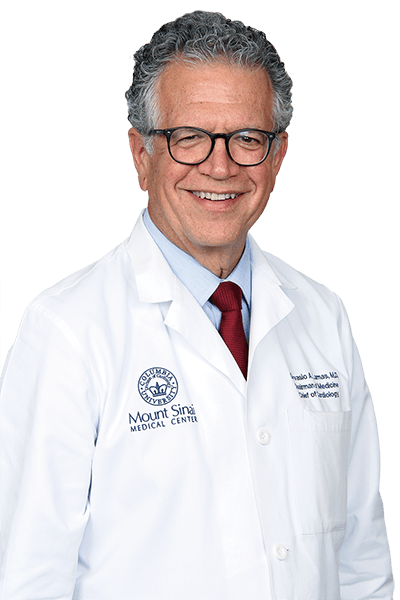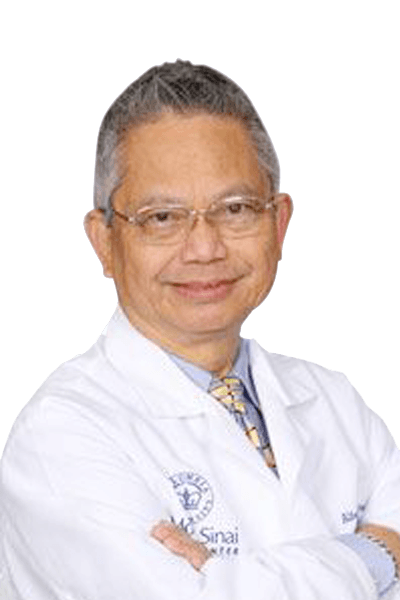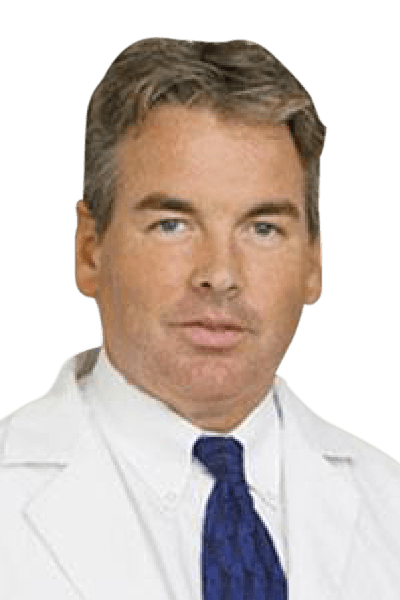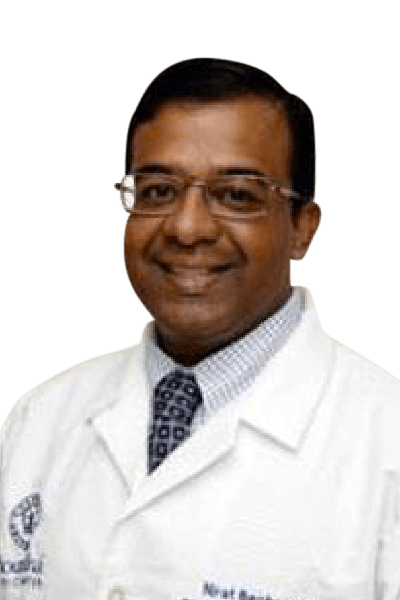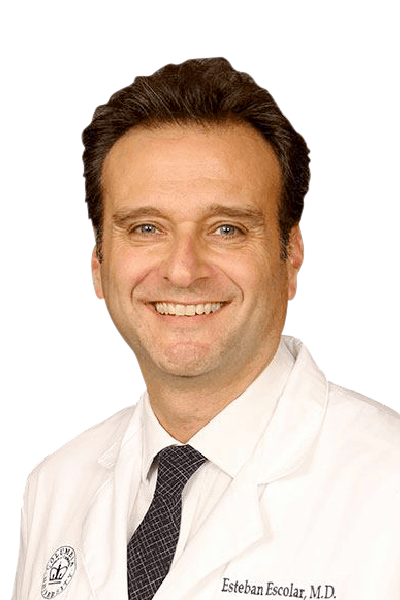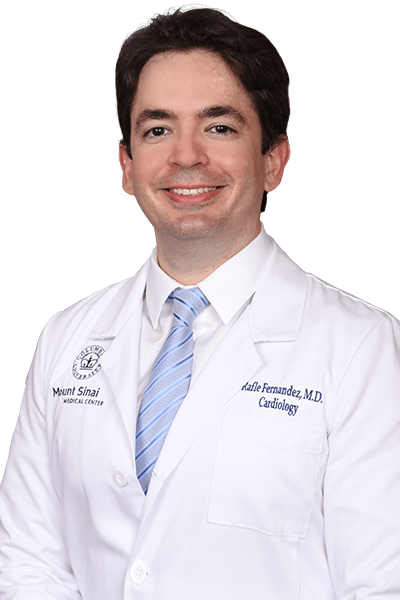Cardiac Surgery
What does it take to be the best? At Mount Sinai Medical Center, home to the Mount Sinai Heart Institute, we measure the success of our cardiac surgery program by many different metrics, including the expertise of our physicians, the advanced technology available for our patients, and the remarkable care delivered by our staff. However, at the end of the day, the most important measure for our patients and their families is our well-earned rank as the number one hospital in the region for cardiac surgery survival.
Experience & Volume
The physicians at Mount Sinai’s Heart Institute have the most experience in cardiac surgery of any hospital in South Florida, and they are among the most experienced physicians nationwide in the highly-delicate sub-specialty of minimally invasive valve surgery. In fact, the cardiac surgeons at Mount Sinai perform more valve surgeries than any other hospital in South Florida. And when it comes to your heart or the heart of someone you love, don’t you want the most experienced physicians available to deliver care for you or your loved one? You want the peace of mind in knowing that your surgeon has performed literally thousands of procedures – all contributing to her or his expertise and helping to produce the best outcomes possible.
Our minimally invasive valve repair and replacement techniques are proven to result in less physical trauma and better long-term outcomes than more traditional cardiac surgical procedures. In addition, our valve repair rates and complex valve reconstructions place our surgical valve program among the premier institutions in the nation.
Coronary Artery Bypass Surgery
When coronary artery disease advances to the point that one or more arteries in the heart become severely blocked by deposits of fat that turn into plaque, the cardiac surgeons at Mount Sinai step in to perform cardiac artery bypass surgery, or CABG for short. Not everyone with blocked coronary arteries can undergo CABG surgery. It’s only for select patients with significant blockages or obstructions of the heart arteries.
During coronary artery bypass surgery, our Mount Sinai cardiac surgeons create a new path, or bypass, around the narrowed or blocked arteries, usually using a blood vessel from another part of the body. The newly grafted blood vessel allows for a clear route to deliver blood with plenty of oxygen and nutrients to keep the heart muscle healthy.
For patients who only have one or two arteries that are blocked, Mount Sinai offers one of the most advanced surgical approaches available: minimally invasive, robotically-assisted CABG surgery. Using the robotic approach, Mount Sinai’s cardiac surgeons avoid the need to perform a sternotomy, which is an incision over the breastbone or sternum. By avoiding the open surgery approach, patients often recover faster, experience less pain, and have a lower risk of infection.
Mount Sinai Medical Center is the only hospital in South Florida that performs this advanced surgical technique for patients requiring coronary bypass. Our coronary surgeries include the following:
- Coronary artery bypass grafting (CABG) surgery with an emphasis on arterial grafts (bilateral internal mammary arteries, radial artery)
- Robotically assisted minimally invasive coronary artery bypass grafting (MIDCAB)
- Redo coronary revascularization (with or without heart valve surgery)
Aortic Surgery
The aorta is the largest artery in the body and is responsible for distributing oxygen-rich blood to every single cell. However, when the aorta becomes damaged, diseased, or injured, patients may require surgery to repair their aortas. These conditions include aortic aneurysms, which occur when the wall of the aorta balloons outward. An aortic aneurysm is a highly dangerous condition, because if the aneurysm bursts, patients can quickly hemorrhage and lose too much blood to survive. Fortunately, Mount Sinai’s expert cardiac surgeons can surgically repair aortic aneurysms, along with a number of other surgeries to address problems that occur specifically to the aorta. Mount Sinai is one of only a handful of centers in Florida with a very specialized Aortic Center, to diagnose, follow, and treat patients with aortic aneurysms throughout the body. Our experts have specialized experience with the advanced surgical treatment of aneurysms. Our procedures include:
- Complex repair of aneurysms of the aortic root and ascending aorta, as well as aneurysms that occur in the aortic arch and descending thoracic aorta
- Valve-sparing aortic root repairs, with or without aortic valve repair
- Minimally invasive and hybrid repairs of aortic arch aneurysms
- Thoracic endovascular aortic repair (thoracic aortic stent grafting) for aortic aneurysms and dissections using transcatheter techniques that frequently do not require incisions in the chest
Carotid Endarterectomy
The carotid artery is a major blood vessel that carries oxygen rich-blood through the neck to your brain. When patients suffer from atherosclerosis, which is characterized by deposits of fat and cholesterol inside the artery, blood may not flow properly. The buildup in the carotid artery, which is called plaque, can lead to stroke or may cause an aneurysm, or bulge, in the carotid artery.
At Mount Sinai, our expert vascular surgeons perform a procedure called carotid endarterectomy to repair the damaged artery. During the procedure our surgeons remove the inner lining of the carotid artery, which often becomes thickened or damaged. The procedure removes the damaging plaque and restores blood flow. Vascular surgeons at Mount Sinai also can perform carotid artery stenting in patients who are deemed to have too high of a surgical risk for conventional surgery.
Heart Valve Repair or Replacement
The heart’s four chambers are separated by valves that control the flow of blood from one chamber to the next. Some people are born with heart defects that prevent one or more valves from working properly. In addition to congenital valve defects, some patients’ valves become damaged from certain diseases, including childhood diseases, and other patients’ valves can be damaged as they age.
Depending on the patients’ specific circumstances, Mount Sinai’s cardiac surgeons may recommend replacement of a heart valve with an artificial, man-made valve, or with tissue valves, which are anatomically similar to a human valve. Alternatively, patients may require valve repair, where your Mount Sinai surgeon will use medical devices or sutures to repair your own valve and help it work properly.
Once a patient’s heart valve is repaired or replaced, symptoms like fatigue, shortness of breath, dizziness, fainting, and swollen ankles often improve, and these patients can also go on to live for many decades with their new healthy heart valve.
Minimally Invasive Valve Repair/Replacement:
Standard open-heart surgery typically requires the surgeon to expose the heart and its vessels through a sternotomy, which involves an incision over the breastbone or sternum, and then dividing the bone to access the heart. While this is an essential part of open-heart surgery, it’s a highly invasive and traumatic procedure.
At the Mount Sinai Heart Institute, we offer several advanced surgical techniques that eliminate the need to open the chest, especially when it comes to heart valve repair and replacement. Our Mount Sinai cardiac surgeons perform minimally invasive valve repair or replacement through a two-inch incision between the ribs on the side of the chest.
Mitral Valve Repair
The mitral valve controls blood flowing into the left side of the heart. However, when the mitral valve doesn’t work properly, blood can regurgitate or flow backward.
Mitral valve problems, which are quite common, can be congenital (from birth), or they can be the result of infections and diseases. They can also happen with age due to “wear and tear” on the heart valve.
At Mount Sinai, our cardiac surgeons use minimally invasive techniques, whenever possible, to repair or replace the mitral valve for patients requiring this intervention. In fact, Mount Sinai has performed more valve surgeries than any hospital in South Florida, and our cardiac surgeons have far-reaching expertise with complex cases, using the most advanced surgical techniques available.
Mitral valve repair involves cutting-edge techniques to reconstruct a patient’s own valve. These repairs can be more difficult than replacing the valves. However, Mount Sinai surgeons have extensive experience with mitral valve repair and higher success rates with repair than any other South Florida center. Mitral valve repair is associated with better survival and better heart function than replacement. Mount Sinai’s surgeons work and pride themselves on having rates of mitral valve repair that are among the highest in the state of Florida.
Minimally invasive approaches provide much more stability to the chest wall and benefit the patient in a number of ways. For example, our minimally invasive valve repair and replacement surgeries result in less scarring, less pain, a faster recovery, and much shorter stay in the hospital: three to four days compared to five to seven days with open-heart surgery.
In addition, with minimally invasive valve repair or replacement surgery, patients experience:
- Less blood loss
- Lower risk of infection
- Quicker recuperation
- More rapid return to a normal lifestyle
- Significantly reduced risk factors in future operations
At Mount Sinai, we use a minimally invasive surgical approach for a wide range of valve procedures, including:
- Mitral Valve Repair/Replacement
- Aortic Valve Repair Surgery
- Aortic Valve Replacement Surgery
- Aortic Root Enlargement Procedures
- Tricuspid Valve Repair
- Double Valve Surgery
- Redo Valvular Surgery
- MAZE procedure for heart arrhythmias
- Repair of atrial septal defects (primum and secundum)
- Resection of atrial tumors (e.g., atrial myxomas) or aortic valve or mitral valve tumors (e.g., papillary fibroelastomas)
Our Physicians
Gervasio A Lamas, MD
Chairman of Medicine
Eugene J. Sayfie Chair of Cardiology
Chief, Columbia University Division of Cardiology at Mount Sinai Medical Center
Co-Director, Mount Sinai Heart Institute
Professor at the Columbia University Division of Cardiology at Mount Sinai Medical Center
- Cardiology
- Concierge Medicine
- Mount Sinai Medical Center (Main Campus)
- 305.674.2998
Alfonso O Tolentino, MD
Vice Chairman of Medicine
Director of Electrocardiography Laboratory at the Columbia Division of Cardiology at Mount Sinai Medical Center
Assistant Professor of Medicine at the Columbia University Division of Cardiology at Mount Sinai Medical Center
- Cardiology
- Mount Sinai Medical Center (Main Campus)
- 305.674.2690
Roy F Williams, MD
Chief, Divison of Thoracic Surgery
- Cardiology
- Robotic Surgery
- Thoracic & Cardiovascular Surgery
- Lung Cancer
- Mount Sinai Medical Center (Main Campus)
- 305.674.2121
Nirat Beohar, MD
Director, Cardiac Catheterization Laboratory
Director, Interventional Cardiology Fellowship Program
Medical Director, Structural Heart Disease Program
Professor at the Columbia University Division of Cardiology at Mount Sinai Medical Center
- Interventional Cardiology
- Cardiology
- Mount Sinai Medical Center (Main Campus)
- 305.674.2690
Esteban Escolar, MD
Director, Coronary Care Unit
Director, Cardiology Clinical Services
Program Director, Brodie Family Cardiovascular Disease Fellowship
Associate Professor at the Columbia University Division of Cardiology at Mount Sinai Medical Center
- Cardiology
- Mount Sinai Medical Center (Main Campus)
- 305.674.2121
- Mount Sinai Primary & Specialty Care Skylake
- 305.919.1970
Rafle Fernandez, MD, MBA, FACC
Associate Director, Clinical Echocardiography
Assistant Professor of Medicine at the Columbia University Division of Cardiology at Mount Sinai Medical Center
- Cardiology
- Mount Sinai Primary & Specialty Care Miami Shores
- 305.891.3710


